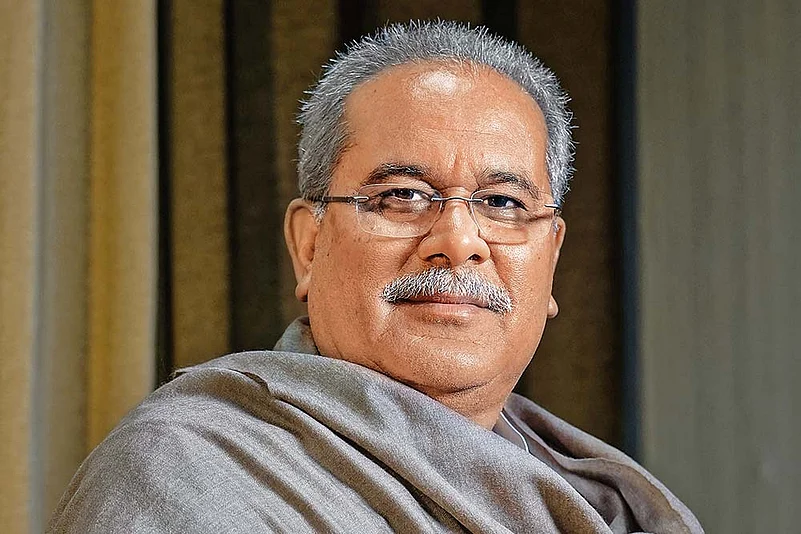As India looks to cut coal, Chhattisgarh chief minister Bhupesh Baghel shares the concerns of the state, which has the third largest coal reserves, and its plans to deal with the situation. Edited excerpts:
What do you think will be the impact of Centre’s commitment to phase out coal-based energy on Chhattisgarh and its people employed in the mines?
Our growth will depend on abundant affordable energy. India’s energy sector depends heavily on coal as fuel for its thermal power plants. Therefore, phasing out coal-based energy will be challenging. On the other hand, one cannot deny the impact of climate change. The target of cutting CO2 emissions to net zero by 2070 is a courageous leap.
Yes, the phasing out of coal-based energy will have a significant impact on the people employed in coal mines, which is only one aspect of this transition. The other impacts will be on the state exchequer, which collects more than Rs 2,500 crore royalty through coal mining in the state and significant contribution through taxes and levies on coal; secondary and tertiary employment and vocational training and infrastructure developed around coal mines; and, coal-based industries, including micro, small and medium enterprises (MSMEs).
Therefore, it is important for us to develop a well-rounded strategy to address the significant challenges that will crop up from the phasing out of coal-based energy.
Is providing employment to people involved in coal mining the responsibility of the state as well as the Centre?
Yes, providing livelihood to anyone who is unemployed is the responsibility of the government of the day—be it the state or the Centre. We would need the Centre to take focused steps which will reduce the impact on coal-bearing states like Chhattisgarh. The state which provides significant natural resources and minerals to boost the growth of the country should get all the support needed to ease this transition. We expect the central government to provide special packages and support in developing other industries in Chhattisgarh.
Has the state government worked out any plan to re-employ people?
As soon as we phase out coal-based energy, we will need to find alternate sources of energy and, therefore, need more minerals for the manufacturing of batteries, solar panels, etc. The mining sector will see the transition from coal to critical minerals and metals.
With successful mineral auctions, we are hopeful that the demand for skilled mining workers will increase in the state. We are promoting mineral-based industries and value-added manufacturing, which require skilled human resource, and we can provide requisite reskilling and vocational training to workers.
Further, coal mine workers are skilled in engineering, designing, production and management. These workers can easily be deployed in other industries, including mining of technology commodities, like silicon, tin, lithium, graphite, tungsten, bauxite and rare earth minerals. So, the state government will positively address this concern.
There will be a significant impact on the tribal population living around the coal mining areas. The state government is implementing various schemes and has also brought in a skill development programme, planned by the district collectors, for the upskilling of tribal people in the mining districts to make them industry ready.
However, this can only be possible if the industry comes together and provides avenues to utilise this skilled workforce to make Chhattisgarh a booming industrial state.

Photo: Suresh K. Pandey
How can the state and Centre ensure a just transition?
Chhattisgarh has already started thinking about a just transition from coal. There was a study conducted in our Korba district, India’s biggest coal-producing district, which proposes a template for planning just transition that is strategic, purposeful and inclusive. In our view, there should be a special package for coal-bearing states under the Finance Commissions in the future. This will ensure better results in the just transition from coal.
According to reports, the Centre has asked for financial assistance from the World Bank to work out a mitigation plan. What is your take on this?
It is a welcome move. The World Bank has introduced the Just Transition For All initiative, which puts people and communities at the centre of the transition. The initiative works with stakeholders to mitigate environmental impacts, support impacted people and build a new clean energy future. This includes looking at the interdependency between the decommissioning of coal assets—mining, transport and power plants—and developing renewable energy programmes to take their place. With the help of the World Bank, we will prepare a set of plans, policies and actions that can together mitigate the impact of the closure of coal mines on affected people and communities.
Are you formulating a new long-term policy to have high-tech industries in the future?
Chhattisgarh is a very progressive state and has already attracted a lot of industries. On the technology industry side, the state is planning many initiatives, like an IT/ITeS special economic zone in Naya Raipur, an electronic manufacturing cluster and an MSME technology center in Bhilai. The Government of India’s Ministry of MSME has also approved a World Bank-funded Technology Centre Systems Programme project with an outlay of $17 million in Bhilai. We are committed to making policy decisions that will support the technology industry in the future as well.
Other key sectors which have attracted investment in the state are defense, food processing, electronics, handicrafts, healthcare, logistics and warehousing.































